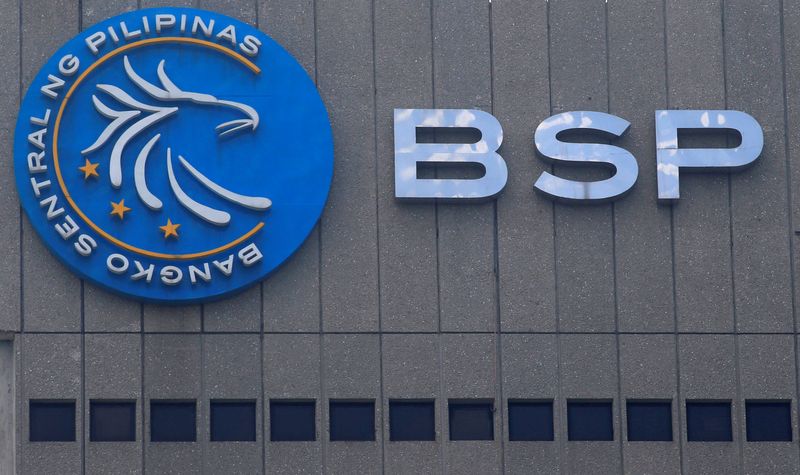Philippines must be a “little aggressive” in raising rates – central bank chief
2022.10.25 06:54
[ad_1]

© Reuters. FILE PHOTO: A logo of Bangko Sentral ng Pilipinas (Central Bank of the Philippines) is seen at their main building in Manila, Philippines March 23, 2016. REUTERS/Romeo Ranoco
By Neil Jerome Morales
MANILA (Reuters) – The Philippine central bank must be a “little aggressive” in tightening policy to bring inflation down to within its target range of 2%-4% next year, its governor said on Tuesday, in yet another signal of his preference for bigger rate hikes ahead.
Bangko Sentral ng Pilipinas (BSP) Governor Felipe Medalla repeated he would vote to match the policy move of the U.S. Federal Reserve, which is expected to deliver another 75 basis-point rate hike at its meeting on Nov. 2.
“If I am the only one voting, I will match the next Fed increase,” Medalla, who heads the seven-person policy-making monetary board, told a banking forum.
The BSP, which has so far raised rates by a total of 225 bps this year, will hold it penultimate meeting about a week after the policy review of the Fed, which is forecast to go for its fourth consecutive 75 bps rate hike to tame inflation.
The BSP’s series of rate hikes has only given policymakers a “50% chance” of hitting next year’s inflation target so “we must be a little bit more aggressive in increasing rates,” Medalla said.
Annual inflation has risen past the central bank’s comfort range with the average rate in the nine months to September at 5.1%, fuelled in part by a weaker peso that has aggravated already elevated costs of imported food and fuel.
The Philippine peso is Southeast Asia’s worst-performing currency, having lost more than 13% against the U.S. dollar so far this year. It closed slightly firmer at 58.78 per dollar on Tuesday compared with Monday’s close at 58.87.
“Given what is happening to the exchange rate, we in this case must respond to the Fed point by point,” Medalla said.
Medalla told reporters on the sidelines of the forum the central bank was intervening in the FX market “almost everyday” to counter volatility, and that the level of its foreign exchange reserves remains adequate.
The peso hitting 61 to a dollar was “not the end of the world,” he said.
The country’s finance secretary said on Monday the government would not allow the peso, which has already hit multi-year lows, to breach 60.
[ad_2]
Source link








